A young man and his piano: solar mini-grids bring new opportunities to off-grid communities
February 20, 2023
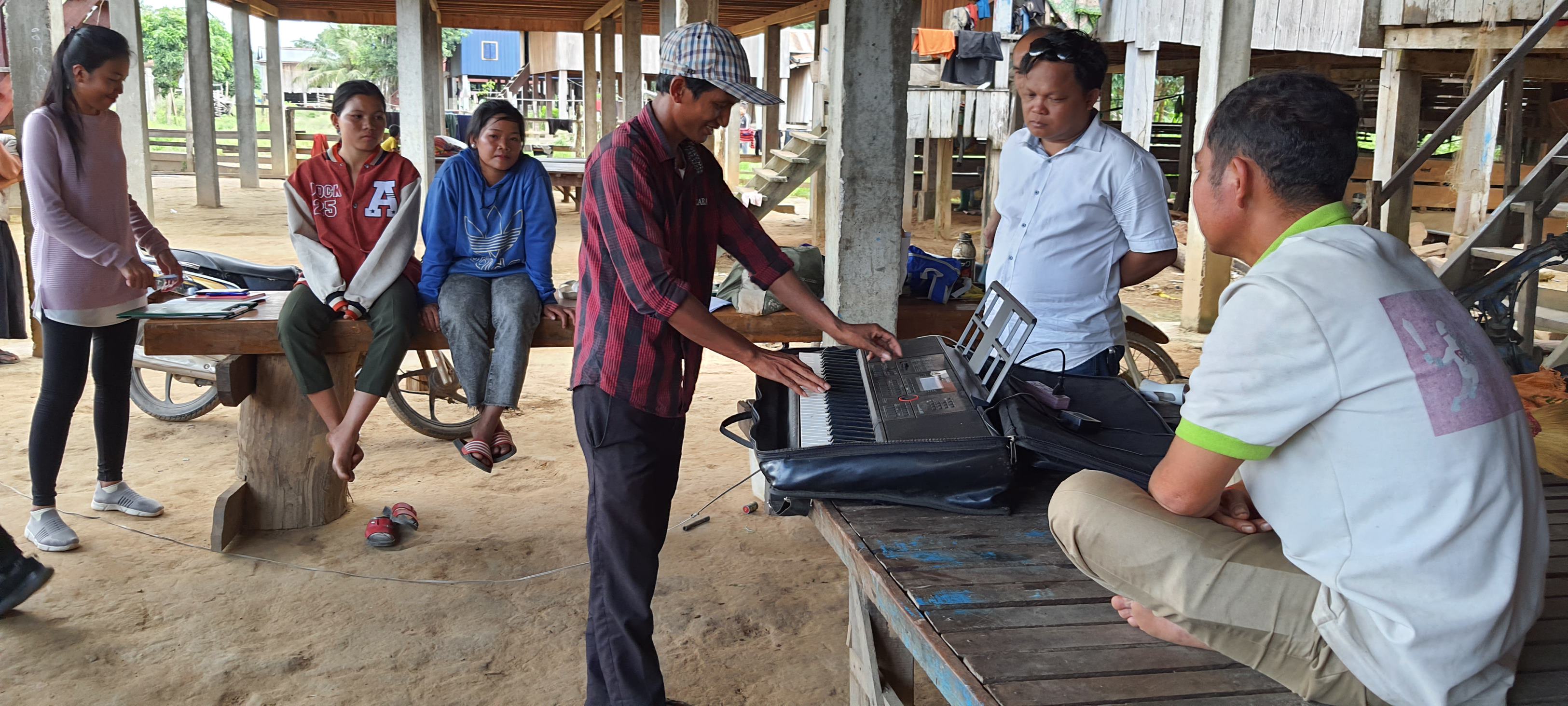
Mr. Veth playing his piano
In February of 2021, the UNDP energy team made its first visit to Pa Tang village in Ratanakiri province. A young man named Mr. Veth acted as their guide, taking them by motorbike into the forest to assess potential sites for pico hydro, i.e., sites with less than 5 kW capacity of hydropower, that could bring electricity to the remote island community.
At the ferry departure point, Mr. Veth told the team that he was incredibly excited to have electricity in his village. When asked what he planned to do with electricity, he shared that he would love to learn to play the piano. His piano would be a keyboard powered by electricity. Also, he would be able to access YouTube and learn to play. He went on to explain the different types of keyboards and the one that he hoped to one day own.
When asked why batteries could not be used to power the keyboard, he shared that those do not provide the needed power for very long. A keyboard would require secure electricity access so that he could learn to play.
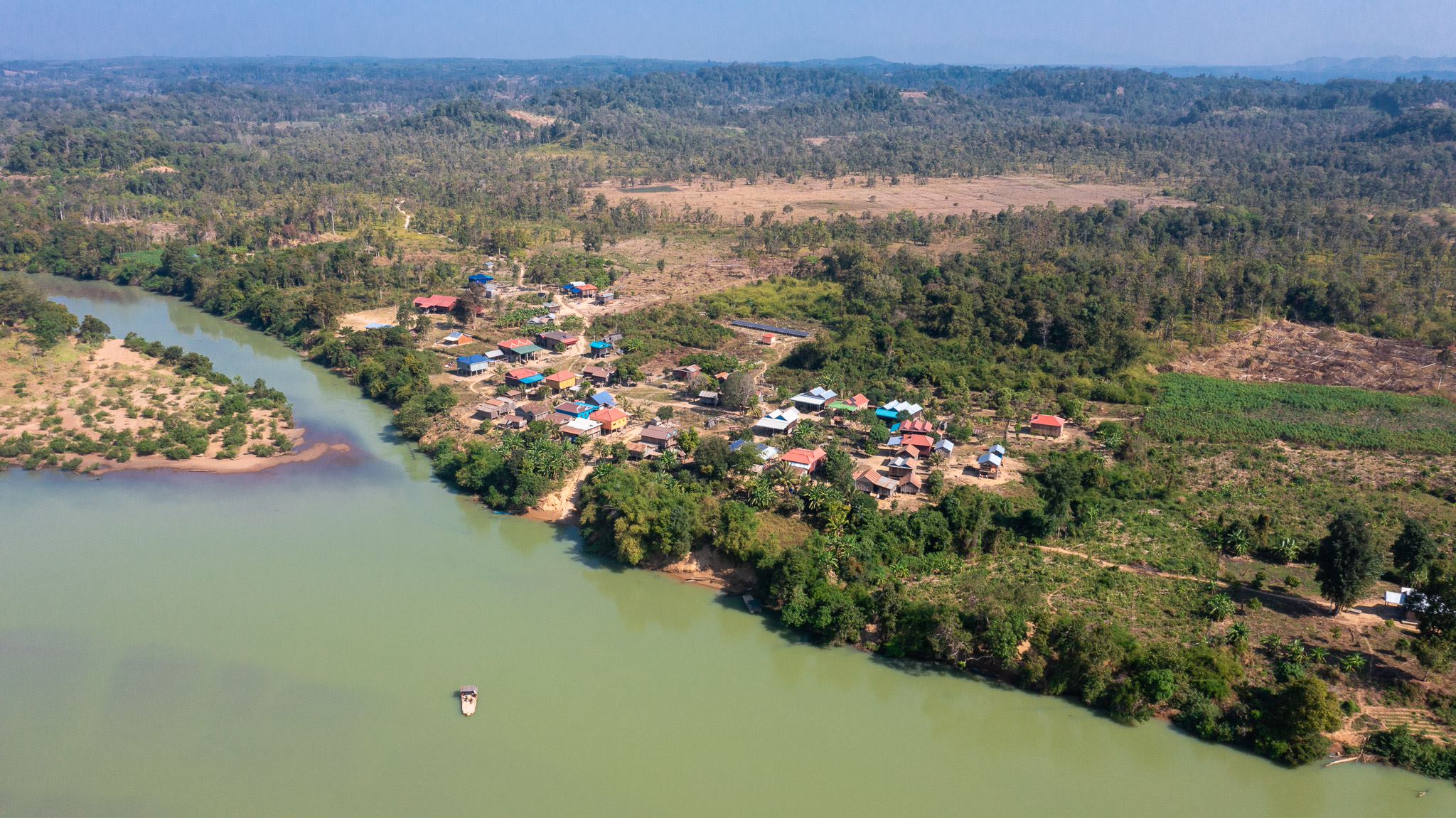
Pa Tang village in Ratanakiri province.
After this visit, the UNDP team returned to Phnom Penh and started assessing potential options for off-grid technologies that could bring power to Pa Tang village.
While the initial plan had been to power the mini-grid with hydro, it was found that the potential sites were too far from the village, which would lead to high power transmission losses. The other option was to power the mini-grid with solar energy.
UNDP completed the installation of the solar mini-grid in Pa Tang in June of 2021. One year later, on a sunny October afternoon, the team travelled back to Pa Tang. A shy young man in his early 20s welcomed them. He took them around the solar farm, where a wide array of photovoltaic panels are now harvesting energy from the sun.
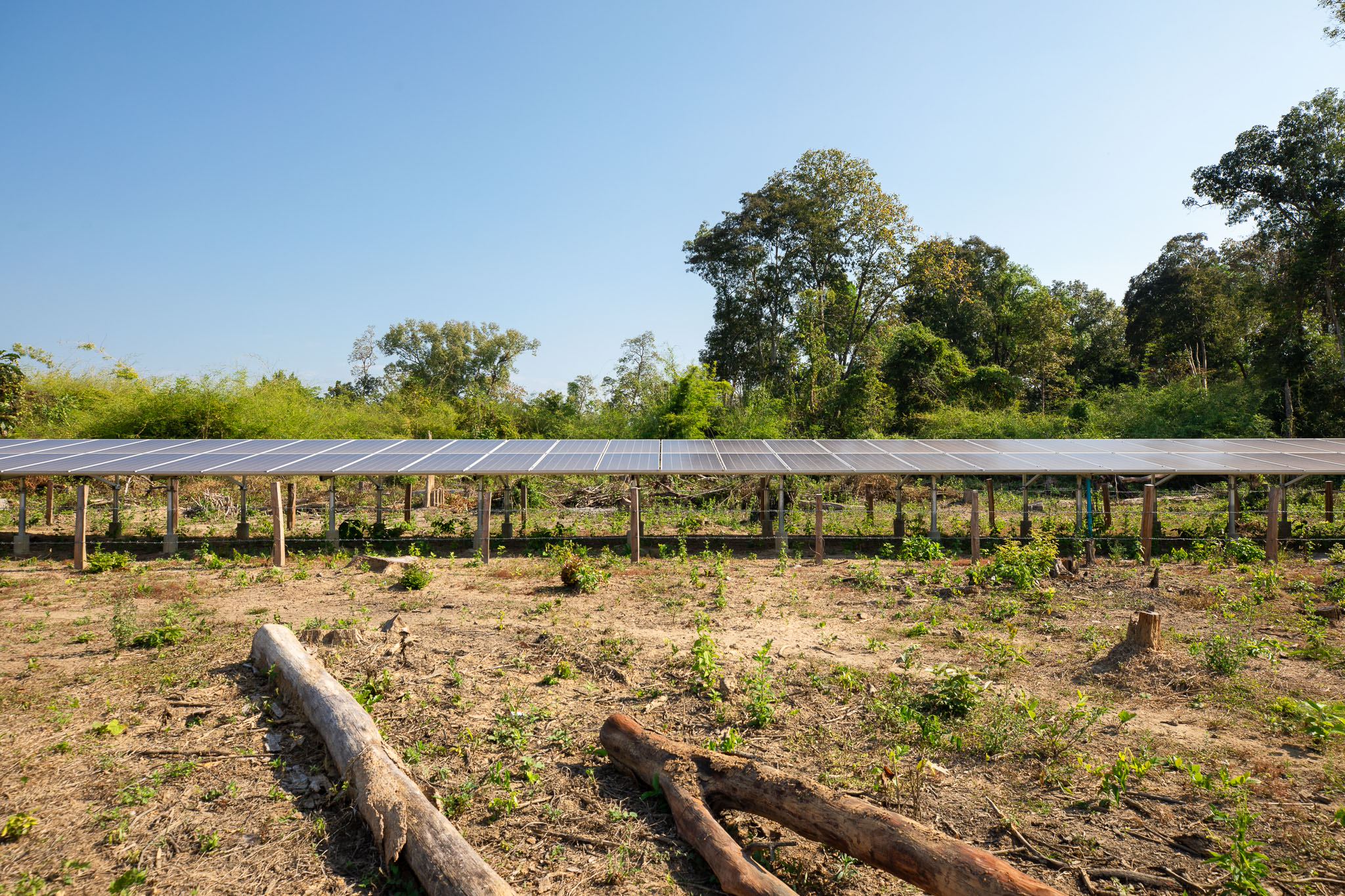
Photovoltaic panels in Pa Tang village
He proudly opened the lock of the powerhouse and showed the batteries and inverters. Almost immediately, he noticed an alarm on three batteries. He turned the batteries off and waited for two minutes before turning them on again. The alarms went off, and the batteries resumed their normal functioning. A big smile appeared on his face as he demonstrated how he could operate the solar mini-grid alone. There is a strong sense of community ownership of the new power source. Like this young man, several others in the village were also trained to perform basic mini-grid maintenance operations.
The team left the powerhouse and made their way around the community of Pa Tang. The villagers expressed confidently that they can operate the mini-grid by themselves, as this does not require high technical knowledge. Rating their satisfaction from 0 to 100 percent, they responded, happily laughing, with a resounding 100 percent. A young girl spoke up, sharing that now that there is electricity in the village, she hopes to run a hair salon or beauty parlour one day.
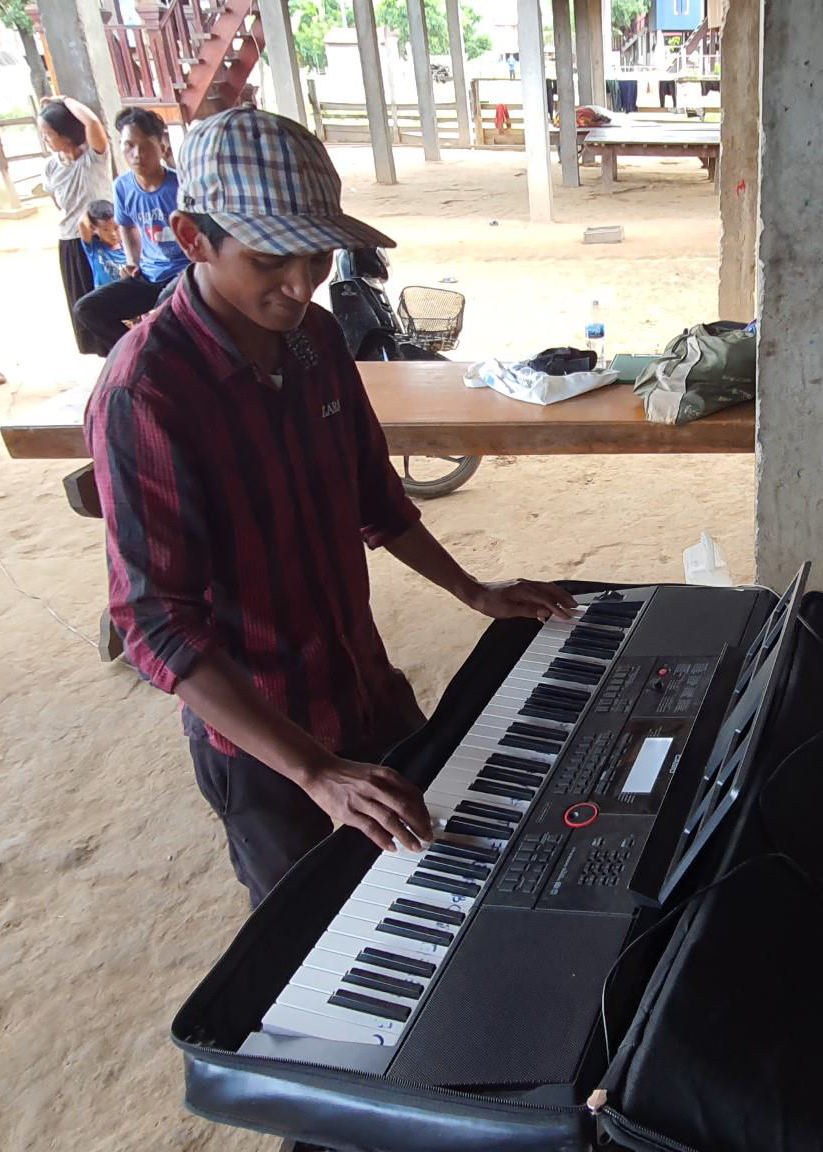
Mr. Veth playing piano
At the time of this second visit, it had been almost one year and three months since the village had access to electricity, and significant changes could be seen in the overall quality of life in Pa Tang. The villagers could now run water pumps for domestic use and drinking. Televisions and music systems could also be heard, as many villagers could now operate electronic appliances.
Perhaps the most surprising change, however, was seeing Mr. Veth again. He had bought the keyboard he told the UNDP team about the year before. He plugged it into a nearby power socket and gave us a performance. Electricity made his life's dream possible! Indeed, it creates countless opportunities beyond expectations.
UNDP energy team in Cambodia witnessed first-hand how access to electricity brings wide-reaching opportunities to communities. Mini-grids are powering streetlights at night, improving safe mobility for women and girls, along with better access to secure drinking water and improved sanitation. There is reduced dependence on firewood, which has freed up the time of women and girls for other opportunities such as education and livelihood development, along with reduced exposure to indoor air pollution. In addition, employment opportunities have been created for youth for the operation and maintenance of the mini-grids.
Off-grid solar electricity can unleash the power of marginalized communities and create numerous economic opportunities. It can also create other surprising opportunities, just like it did for Mr. Veth.
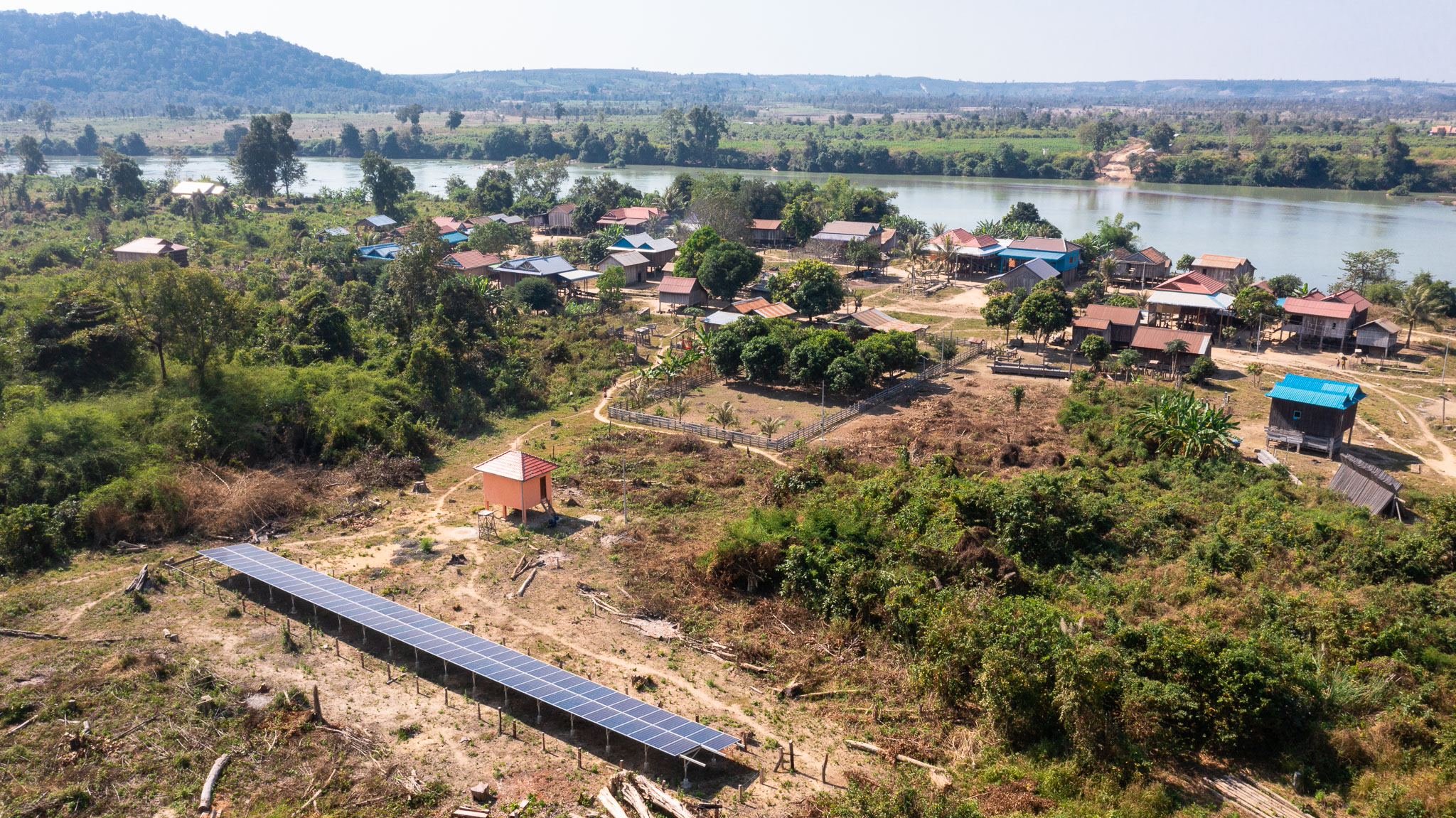
The mini-grid system at Pa Tang village in Ratanakiri province: Photovoltaic panels and housing for inverters and batteries

 Locations
Locations